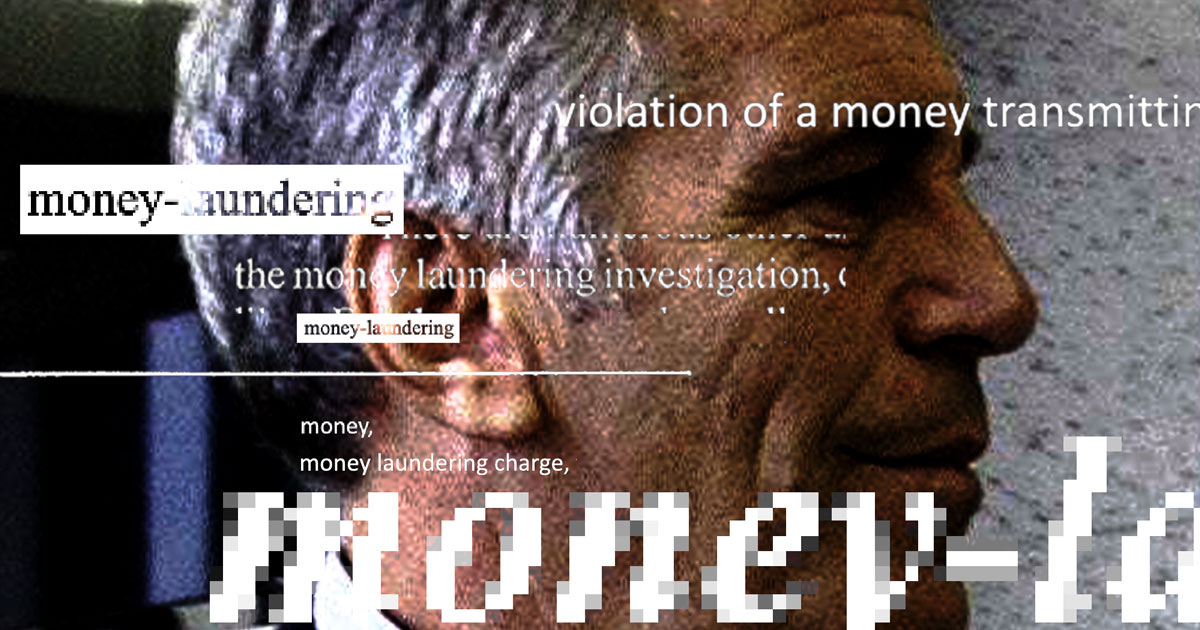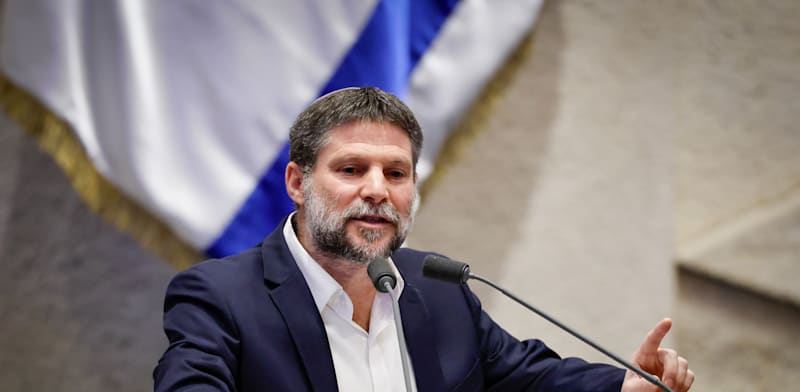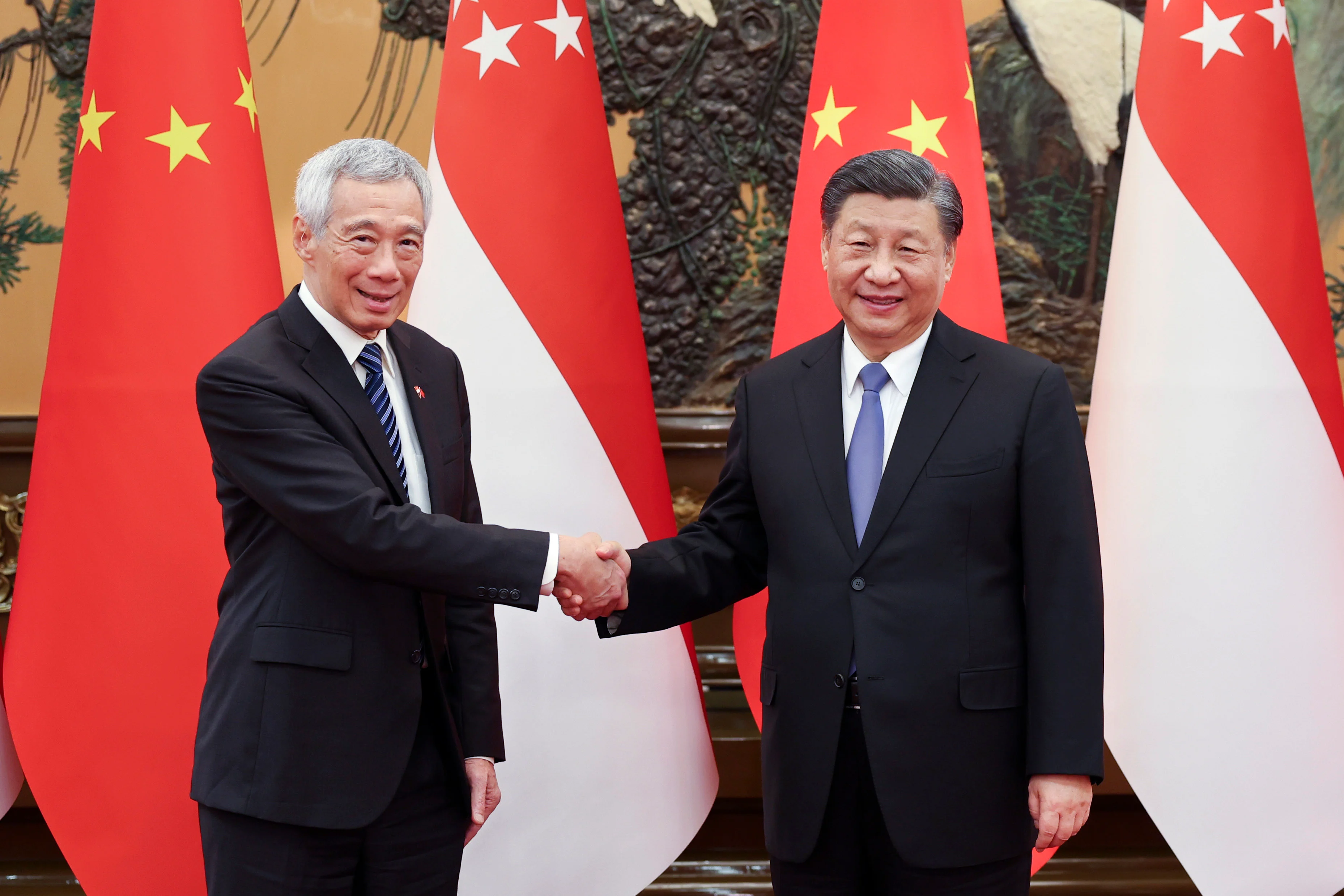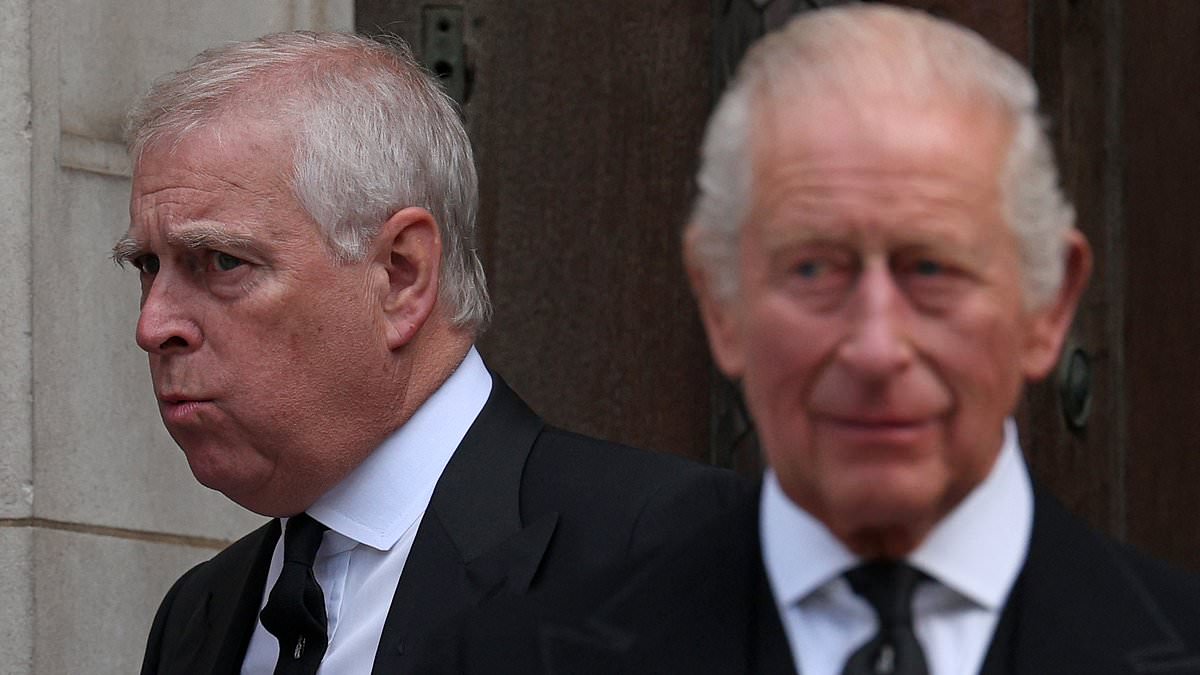Copyright Bloomberg

The Big Take Following Epstein’s Money Federal prosecutors opened a financial-crimes investigation into Jeffrey Epstein in 2007 amid their larger sex-trafficking probe. The financier and his legal team waged a war against them, his emails show. Share this article Federal prosecutors expanded their probe into Jeffrey Epstein’s sex crimes in 2007 to include potential charges of money laundering, an effort that included an outreach to one of his most important clients, according to documents and emails from Epstein’s personal Yahoo account. The lead prosecutor requested that a grand jury issue subpoenas for “every financial transaction conducted by Epstein and his six businesses” dating to 2003, the emails show. Prosecutors also subpoenaed major banks for records about Epstein’s accounts and financial activity, according to two people familiar with the matter, who asked not to be identified to discuss a sensitive investigation. Marie Villafaña, who was an assistant US attorney for the Southern District of Florida at the time, even contacted Epstein’s longtime wealth-management client, Les Wexner, the billionaire businessman behind the brands Victoria’s Secret and Bath & Body Works, about the investigation, according to the documents and emails. Epstein grew furious when he learned that prosecutors had broadened their investigation’s scope, the emails show. His high-powered team of lawyers, including Gerald Lefcourt, Harvard Law School professor Alan Dershowitz, former Bush administration official Jay Lefkowitz and former Independent Counsel Kenneth Starr, argued that Villafaña was pursuing baseless claims to pressure their client into a plea deal. They launched an aggressive campaign to discredit her attempts to follow the money and pressured her higher-ups to remove her and others from the case—or scuttle the case entirely. Ultimately, efforts to prosecute Epstein for sex crimes and financial crimes ended after senior officials in the US attorney’s office directed prosecutors to begin plea negotiations with Epstein. Those talks led to a federal non-prosecution agreement as Epstein pleaded guilty to two state-level sex charges—an outcome that’s been widely derided as far too lenient. More than a decade would pass before Epstein’s finances came under scrutiny again. Villafaña, who left the federal prosecutor’s office in 2023, declined to comment for this story. These previously unreported details of the financial-crimes probe were contained in a trove of 18,000 emails from Epstein’s private Yahoo email account obtained by Bloomberg. The relevant correspondence began about a year before Epstein reported to a Palm Beach County jail in June 2008. It includes his communications with his attorneys, correspondence pertaining to the grand jury’s inquiry and draft complaints that some of his lawyers prepared alleging prosecutorial misconduct. It also includes Epstein’s aggrieved, typo-laden missives about the investigation to friends and business associates, including the former chief executive officer of investment bank Bear Stearns. ➞ Read more about how Bloomberg News vetted Epstein’s emails Listen to The Big Take podcast on Epstein’s Emails The money laundering probe adds a new layer to the narrative about how the government conducted its investigation into the notorious sex abuser. It also raises questions about what evidence prosecutors may have gathered as they followed Epstein’s money, long before the public began demanding a full accounting of his case. If that investigation had continued, prosecutors may have been able to identify other individuals and institutions that facilitated his sex-trafficking operation, said Stefan Cassella, the former deputy chief of the Department of Justice’s Asset Forfeiture and Money Laundering Section. They might also have recovered more restitution for his victims, Casella said. The documents and emails obtained by Bloomberg do not reveal important aspects of the money laundering investigation—including, most prominently, what it found. Nor do they detail the transactions that the government sought to examine, the six businesses that were targeted by subpoenas, the specific dollar amounts involved nor the manner in which Epstein was suspected of laundering funds. One former law enforcement official familiar with the matter, who spoke to Bloomberg on the condition of anonymity because of the sensitivities surrounding the case, said the probe lasted 18 months and turned up at least tens of millions of dollars in questionable financial transactions. The revelation that the investigation had a financial aspect also puts a spotlight on Alex Acosta, the former US Attorney for the Southern District of Florida, who signed off on Epstein’s plea deal. Last month, Acosta told the House Committee on Oversight and Government Reform that he didn’t recall any discussion of “potential financial crimes” as part of his office’s Epstein investigation. Yet the emails and documents from Epstein’s Yahoo account show that prosecutors in his office discussed the financial-crimes component of the investigation with Acosta and copied him on correspondence about it. Records obtained as part of the money laundering probe were stored at the US Attorney’s Office in a folder titled, “Money Laundering,” which contains “attorney research and handwritten notes,” according to a partial list of the government’s evidence that was filed in a related court proceeding. That list also mentions folders containing subpoenas, correspondence and responsive documents for JPMorgan Chase & Co. as well as for Bear Stearns and Washington Mutual. (In 2008, JPMorgan acquired Bear and took over the banking operations of WaMu.) A spokesperson for the bank said it’s “unable to find any such subpoena in the Epstein matter.” The JPMorgan spokesperson added that it “cannot identify anything” on Washington Mutual but confirmed that Bear Stearns responded to a subpoena. Two people familiar with the investigation told Bloomberg that JPMorgan received a subpoena in 2007 in connection with the money laundering probe. Epstein’s case has garnered enormous interest since President Donald Trump took office this year after promising to release the so-called Epstein files, which the government has said encompass more than 300 gigabytes of investigative material. However, in July, the Trump administration backtracked, saying that “no further disclosure would be appropriate or warranted.” Since then, lawmakers on two congressional committees have intensified their scrutiny over a notorious case that has only become more controversial in the six years since Epstein was found dead in his New York City jail cell. Among the unanswered questions are how a college dropout-turned-financial adviser amassed his fortune and how he grew to hold such influence among the world’s elite, including politicians, celebrities and bankers. In July, Democratic Senator Ron Wyden, the ranking member of the Senate Finance Committee, said the panel reviewed records compiled by the Treasury Department’s Financial Crimes Enforcement Network, or FinCEN, that revealed major banks facilitated more than $1.5 billion in payments that Epstein used to traffic women or “engage in dubious transactions indicative of money laundering.” This month, House Democrats on the Judiciary Committee sent letters to four major banks requesting records related to Epstein: JPMorgan, Deutsche Bank, Bank of America, and Bank of New York Mellon. Wyden said in a statement to Bloomberg that “money laundering charges surely would have been a centerpiece of any serious prosecution aimed at bringing [Epstein] down for good.” He added that the decision to drop the federal money laundering case as part of the government’s non-prosecution agreement was a “staggering miscarriage of justice.” “These new details only raise additional questions about Acosta’s truthfulness,” Wyden said. “The best-case scenario according to his story is that it was by incompetence rather than by choice that he allowed Epstein to go on trafficking women and girls for another decade.” Democratic Representative Robert Garcia, the ranking member on the House Oversight Committee, said in an interview that he was appalled that he’s only now learning of a money laundering investigation. “This information makes it incredibly clear that there is a massive cover-up happening right now,” he said. “It appears that DOJ is likely sitting on evidence that Epstein’s crimes were perhaps even bigger than have been publicly reported. I think this calls into question Acosta’s entire testimony.” An attorney for Acosta, Jeffrey Neiman, told Bloomberg that the existence of a financial probe would not be “inconsistent” with Acosta’s statements to the committee. “Back in 2006, the Southern District employed over two hundred attorneys and, at any given moment, conducted countless investigations. Although Mr. Acosta approved the terms of the Epstein matter, he did not direct that investigation—or any investigation, for that matter,” he said. “If evidence of financial wrongdoing existed, no agreement prevented the Department of Justice from pursuing it in the many years following Epstein’s sex-crimes prosecution.” Large amounts of cash Federal prosecutors began investigating Epstein in 2006, about a year after the Palm Beach Police Department opened a criminal investigation into a local man that teenage girls referred to simply as Jeff. In November of that year, prosecutors issued a subpoena for Epstein’s personal income-tax returns for the previous two years, documents in Epstein’s inbox show. Then, in February 2007, the money-laundering probe was opened, according to the former law enforcement official. At around the same time, prosecutors focused on a pattern of transactions in which Epstein directed some of his employees to withdraw large amounts of cash to disburse to women around the world he was suspected of having victimized—the basis for a potential charge of operating an unlicensed money-transmitting business, according to the former law enforcement official. Three months later, in May 2007, Villafaña drafted a 53-page indictment and an 82-page prosecution memo, according to a 2020 Justice Department report that examined the integrity of the federal investigation. That report described Villafaña urging her superiors to move swiftly because she believed Epstein was continuing to sexually abuse girls. Instead, the report concluded, she was stonewalled by senior officials at the office who saw her as too aggressive. (The 2020 report does not mention any financial-crime element of the probe.) The evidence Villafaña collected was serious enough that she wrote in the prosecution memo that Epstein should be charged with money-laundering and operating an unlicensed money transmitting business, according to the former law enforcement official. The indictment, a copy of which hasn’t been publicly released, was never filed and remains shrouded in secrecy. Instead, in July 2007, Villafaña and her colleague Jeffrey Sloman, the second in command at the US Attorney’s office, were directed to enter into negotiations with Epstein’s legal team on a non-prosecution agreement. Sloman didn’t respond to requests for comment. Initially, the emails and documents show, Epstein rejected prosecutors’ proposals that he plead guilty to sex crimes with a minor, register as a sex offender, pay damages to an undisclosed list of victims and spend two years in prison. A month in, the negotiations stalled. Then on Aug. 16, 2007, Villafaña requested that a grand jury issue subpoenas for Epstein’s financial records dating back to 2003. On the same day, Villafaña also sent a letter informing Epstein’s defense attorneys that she would continue investigating his finances as long as the NPA remained unsigned. That letter was detailed in a 22-page document prepared by Epstein and his lawyers that was titled “In re: Grand Jury Investigation of Jeffrey Epstein.” (Track changes in a draft of the document show Epstein made numerous edits under the initials “JEE.”) (“In other words, if the sex offense case is resolved, the Office would close its investigation into other areas as well. The matter has not been, and it does not appear that it will be, resolved so the money laundering investigation continues, and Request Number 6 [seeking records of every financial transaction conducted by Epstein and his six businesses from “January 1, 2003 to the present”] will not be withdrawn.”) Attachment: Sloman Misconduct jeffrey.doc Two weeks later, Epstein continued to reject the government’s offer and sought a meeting with Acosta, according to the documents in Epstein’s inbox. Villafaña then issued target letters to three of Epstein’s assistants informing them that their boss was now under investigation for money laundering and other financial crimes. She also dispatched agents from the Federal Bureau of Investigation to the homes of two of his secretaries. Finally, on Sept. 24, 2007, one day before Villafaña said she was prepared to indict him, Epstein signed the non-prosecution agreement. ‘this is how crazy’ The federal investigation and the money laundering probe didn’t end there. Villafaña kept both open as she worked with Epstein’s attorneys to reach an agreement on certain terms of the plea deal. Epstein was incensed. He and his attorneys took steps to back out of the agreement he’d signed. On Oct. 15, 2007, Epstein sent himself an email and attached a word document he wrote titled, “Did you know that.” The document contained 29 complaints about the federal investigation. It portrayed his victims as unreliable witnesses and drug abusers vying for his money. It cast the investigators and prosecutors as biased, inept and unethical. “She does not follow procedure to get the necessary approvals. Before subpoenaing a lawyer,” he wrote about Villafaña. He also argued that he was being unfairly targeted by the financial investigation: 20. She begins a money laundering investigation, without the necessary requirement of specified illegal funds, 21 She says she is contemplating charging a violation of a money transmitting statute, though Epstein has no such business, Attachment: did you know that 2.docx And he took note of one particular move Villafaña made: “She calls Les Wexner to inform him of the investigation.” The former law enforcement official said Villafaña contacted Wexner in an effort to get him to cooperate and provide information about Epstein, his business, his travels and his enterprise. Shortly after that conversation, Wexner took steps to end Epstein’s role as his wealth manager, the emails show. The first signs of a break-up appeared in the emails in October 2007. That’s when Epstein’s lawyer, Darren Indyke, sent him a message discussing the transfer of interests in Wexner’s Aspen ranch from one of Epstein’s entities to another controlled by Abigail Wexner, Wexner’s wife. Over the following months, a flurry of emails shows the steps the Wexners took to reassert control over tens of millions of dollars of their assets. (In 2019, after federal prosecutors in New York charged Epstein with sex trafficking, Wexner sent a letter to his charitable foundation stating that he’d largely cut ties with Epstein around 2007 and “discovered that he had misappropriated vast sums of money from me and my family.”) As Epstein reflected on his case, his emails about it became more frantic. On Nov. 16, 2007, he sent one to Jimmy Cayne, the former chief executive of Bear Stearns, and his friend the psychiatrist Henry Jarecki to run an “initial pitch” past them that he planned to send to his attorneys. Under the subject line, “this is how crazy,” it contained a litany of grievances toward the prosecutors. From: jeffrey epstein To: jcayne@[REDACTED], henry jarecki <[REDACTED]> Date: Fri, Nov 16 2007 9:08 AM Subject: this is how crazy 1.my team consists of professionals with over 250 years of criminal experience. In an abundance of care , we have also consulted with outside ethics experts,and former justice dept officials .The clear and unanimous consensus is they find the conduct outrageous and frankly not one of them , has been able to recall seeing anything like this before.. .2 . After the state had conducted its own investigation and returned a grand jury indictment.,the federal gov't , while adamantly refusing to coordinate with the duly elected district attorney, and his sex prosecutor of 13 years, ,, engaged in a virtual extortion , to force the defendant and his counsel to go the state ,and in a wholly unprecedented step, demand , himself that he be charged with a crime greater than the state and grand jury thought appropriate. They then further demanded he obtain, from the state a sentence much greater than the state and its officials wanted., including having to register as a sex offender, a position that the state adamantly opposed. They then compounded their outrageous behavior by then demanding that Epstein pay an unnamed list of people ""alleged victims"",, a minimum of 150 thousand dollars each. No matter what their actual damages. They then refused the defendant, even the right to contact these adults.or conduct his own investigation. This was demanded in exchange for the gov't not prosecuting him for crimes, that they , the feds admittedly could only make the most tenuous connection to. The ausa then suggested the defendant be required to hire one of her friends as a continency lawyer, to , be paid for by the defendant to actually sue the defendant himself ,on behalf of a list of adults that she would only make avaliable after sentencing.. They threatened to use the sex tourism statute 2423 ( with a min mandatory sentence of 10 years) , and apply it to a man going to his home in Florida, a state where he has had a home for twenty years. They also threatened , to bring a case based on the Internet luring statute,2422 that would have to be tortured and stretched beyond all recognition to apply.( in fact there was no internet use at all). They demanded a jail sentence for someone , who had no criminal history,, no violence , drugs, no position of authority, then when they were confronted with an extensive brief as to why these statutes did not apply, they threatened to bring a money crime based on a illegal money transmitting business, even though no such business ever actually existed.. After subpoenaing his tax returns , and medical records, they then suggested a money laundering charge or a host of others including the mann act, obstruction etc. , even though they were unable to even postulate the minimum prerequisitie of a specified unlawful activity,. Be a better pen pal. Text or chat with friends inside Yahoo! Mail. See how. http://overview.mail.yahoo.com/ Jarecki didn’t respond to requests for comment. Cayne died in 2021. A week later, Epstein sent himself another email with another document attached titled, “Acosta challenge.” It was intended for his attorneys to send to Acosta after they met with him. The letter criticized Villafaña, particularly her pursuit of his alleged financial crimes. Thank you for your time on wed. It was very informative. I was quite surprised to learn that both you and your office are committed to a level playing field. The horizontal equity, policy to which you referred has clearly not been exercised in this case. The policy clearly implies that a man of wealth of should be treated no differently than any of those less fortunate . That has certainly not happened here .Though many cases of a similar and even more serious nature have been resolved with a sentence of house arrest,(even the madam in the recent Kuton case) we were told that it was not available to my client, because it would be considered “mansion” arrest . My client, under investigation for a sex offense, has been asked for his income tax returns, all bank accounts, his medical records , threatened with a money laundering charge, though the minimum pre-requisite of a specified unlawful activity could not be described. , and even a money transmitting business violation , where in fact no business even existed. In addition , Marie called his largest business client directly. With no justification . Attachment: Acosta challenge.docx ‘Always be careful’ On Dec. 13, 2007, after additional attacks reflected in the emails, Villafaña responded to the accusations in a five-page letter to Lefkowitz that addressed his numerous criticisms about the government’s case. Both Acosta and Sloman were copied on the letter, which was made public in a 2016 lawsuit filed by Epstein’s victims. “Dear Jay, I am writing not to respond to your asserted ‘policy concerns’ regarding Mr. Epstein's Non Prosecution Agreement, which will be addressed by the United States Attorney,” wrote Villafaña. “But the time has come for me to respond to the ever-increasing attacks on my role in the investigation and negotiations.” In a footnote, she called out Lefkowitz for what she said were “unfounded allegations in your letter about document demands, the money laundering investigation, contacting potential witnesses, speaking with the press, and the like.” Villafaña wrote that she prepared an analysis of Epstein’s alleged money laundering and ran it by the duty attorney (a specialist prosecutor who provides authorization or legal guidance on urgent matters) at DOJ’s Asset Forfeiture and Money Laundering Section before she launched the investigation. “You also accuse me of ‘broaden[ing] the scope of the investigation without any foundation for doing so by adding charges of money laundering and violations of a money transmitting business to the investigation,’” she wrote. “Again, I consulted with the Justice Department’s Money Laundering Section about my analysis before expanding that scope. The duty attorney agreed with my analysis.” Lefkowitz didn’t respond to requests for comment. Lefcourt, another one of Epstein’s attorneys, declined to comment. In response to questions about the letters and the financial crimes investigation, Dershowitz told Bloomberg that he does not recall “any involvement” in the discussions related to allegations of money laundering. Starr died in 2022. Through the first half of 2008, members of Epstein’s legal team continued to challenge the non-prosecution agreement and question the motives and ethics of Villafaña and her colleagues. One 10-page letter, shared among Epstein and his attorneys in March 2008, was composed in the manner of a formal complaint and was addressed to H. Marshall Jarrett, the head of DOJ’s Office of Professional Responsibility. The letter closed with “Very truly yours” alongside the names of Starr and Dershowitz. (It’s unclear whether this version of the letter was sent.) In the draft obtained by Bloomberg, Epstein’s lawyers complained that Villafaña and Sloman deployed “unduly invasive” and “heavy handed” tactics, including the threat of financial-crimes charges, to pressure Epstein into making a deal. They also accused the prosecutors of trying to “harass and terrorize” Epstein by “requesting documents whose subject matter have no relation whatsoever to the allegations against Mr. Epstein including his personal tax returns, a significant number of bank records, and an array of email and computer records that would jeopardize the privacy of many of his friends and business clients.” The letter then accused Villafaña of inappropriately using information in those documents to pursue criminal charges relating to Epstein’s finances. Ms. Villafana then inexplicably broadened the scope of the investigation without any foundation for doing so. In what can only be seen as an attempt to intimidate Mr. Epstein, Ms. Villafana then added money-laundering and unlicensed wire-transmittal to the list of violations under investigation even though there was no evidence against Mr. Epstein concerning these charges. Attachment: opr draft 1.doc The letter also said prosecutors behaved contrary to professional norms by using the grand jury to “discover irrelevant financial information about Epstein” and improperly “called Mr. Epstein’s largest and most valued business client without any basis to inform him of the investigation in an effort to poison Mr. Epstein’s reputation in the business community.” (The letters do not cite Wexner by name. Epstein wrote in an email and a separate document that the call was made to Wexner.) On May 31, 2008, Epstein sent his attorneys an email, asking them to mention the money laundering probe among other items in a letter they were drafting for then-Deputy Attorney General Mark Filip to demand a high-level review of the case. The 2020 DOJ report says Filip delegated another senior DOJ official to deal with the letter. (That official concluded that there was no cause to intervene, according to a document made public in 2017.) Epstein’s relentlessness paid off. Prosecutors made several concessions during settlement talks following months of tense negotiations. On June 30, 2008, Epstein pleaded guilty to two sex charges in state court. It was nine months after he’d signed the non-prosecution agreement that allowed him to escape federal charges, serve a reduced jail sentence and shield his co-conspirators from prosecution. The deal also brought the government’s investigation into Epstein's finances to a halt. According to the former law enforcement official, the money-laundering probe remained open until the day of Epstein’s guilty plea. Four days before he reported to prison, Epstein received an email from Wexner, whose wife had updated him about Epstein’s situation. From: Wexner, Les To: jeeproject@yahoo.com <> Date: Thu, Jun 26 2008 5:45 PM Subject: Abigail told me the result...all I can say is I feel sorry. You violated your own number 1 rule... Always be careful. “no excuse,” Epstein responded. A spokesperson for Wexner declined to comment. A person close to Wexner said his email “expressed his strong disappointment that Epstein had breached his fiduciary duties and broken the family’s trust.” ‘I can’t speak to that’ Last month, Acosta told the House Oversight Committee he had no recollection of the financial crimes investigation that prosecutors in his office led for more than a year. During the interview with lawmakers, Representative Melanie Stansbury, a New Mexico Democrat, peppered Acosta with questions about whether his office probed any “financial crimes” as part of their Epstein case. “I don't recall a financial aspect,” Acosta said, according to a transcript of his interview the committee released this month. “We were focused on the inappropriate acts that took place in Palm Beach.” She then asked him whether his office discussed “potential financial crimes” and whether it was “part of the decision as to whether or not to pursue federal charges?” “To my recollection, the discussion was focused on the sex crimes,” Acosta said. “And why not on the financial crimes?” Stansbury pressed. “This was 20 years ago. I can’t speak to that.” “Was that not a part of what was recommended through the line prosecutor?” Stansbury asked, referring to Villafaña. “Again, I can’t speak to that,” Acosta said. At one point during the interview, Acosta turned the questioning on Stansbury. He asked her: “Are there communications about a financial aspect to the case?” “You were the prosecutor,” Stansbury said. “Not me.” Stay connected: Don’t miss hearing about upcoming reporting: Sign up for the weekly newsletter written by Bloomberg’s senior investigative reporter Jason Leopold.



